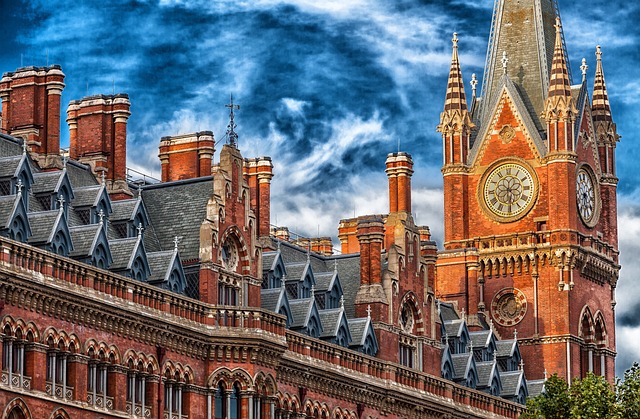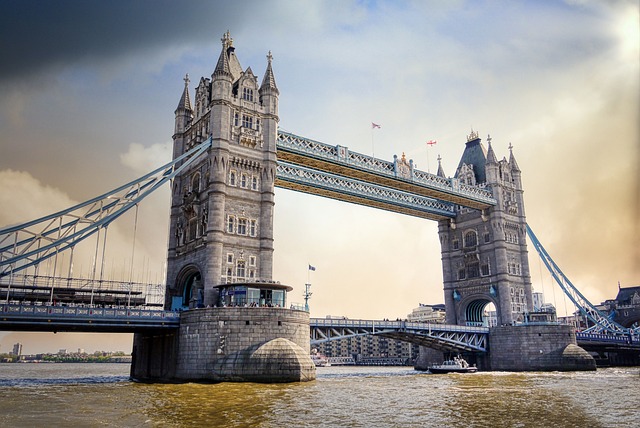British Literature: Famous Authors and Works

British literature has a rich and diverse history that spans centuries, encompassing a wide range of genres, styles, and themes. From the epic poems of the Middle Ages to the modernist experiments of the 20th century, British authors have made significant contributions to the world of literature. This article explores some of the most famous British authors and their notable works, highlighting their impact on literature and culture.
1. Medieval and Renaissance Literature
A. Geoffrey Chaucer (c. 1343–1400)
- Notable Work: The Canterbury Tales
- Overview: Chaucer is often referred to as the “Father of English Literature.” The Canterbury Tales is a collection of 24 stories told by a group of pilgrims traveling to Canterbury. The tales are written in Middle English and provide a vivid portrayal of medieval society.
- Significance: Chaucer’s use of vernacular English helped establish the language as a legitimate medium for literature.
B. William Shakespeare (1564–1616)
- Notable Works: Hamlet, Romeo and Juliet, Macbeth, Othello, A Midsummer Night’s Dream
- Overview: Shakespeare is widely regarded as one of the greatest writers in the English language. His works include 39 plays, 154 sonnets, and two long narrative poems. His plays explore themes of love, power, jealousy, betrayal, and the human condition.
- Significance: Shakespeare’s influence on literature, theatre, and the English language is unparalleled. His works have been translated into every major language and are performed more often than those of any other playwright.
C. John Milton (1608–1674)
- Notable Work: Paradise Lost
- Overview: Paradise Lost is an epic poem that retells the biblical story of the Fall of Man, including the temptation of Adam and Eve by Satan and their expulsion from the Garden of Eden.
- Significance: Milton’s work is celebrated for its complex exploration of themes such as free will, obedience, and the nature of evil.
2. 18th and 19th Century Literature
A. Jane Austen (1775–1817)
- Notable Works: Pride and Prejudice, Sense and Sensibility, Emma
- Overview: Austen’s novels are known for their keen social commentary, wit, and exploration of the lives and marriages of the British gentry. Pride and Prejudice is particularly famous for its portrayal of the spirited Elizabeth Bennet and the proud Mr. Darcy.
- Significance: Austen’s works have had a lasting impact on literature and popular culture, inspiring numerous adaptations and reinterpretations.
B. Charles Dickens (1812–1870)
- Notable Works: A Tale of Two Cities, Great Expectations, Oliver Twist, David Copperfield
- Overview: Dickens’ novels are characterized by their vivid characters, social criticism, and depiction of Victorian England. His works often highlight the struggles of the poor and the injustices of the class system.
- Significance: Dickens is one of the most widely read and influential authors in the English language. His works have been adapted into countless films, television series, and stage productions.
C. The Brontë Sisters
- Charlotte Brontë (1816–1855): Jane Eyre
- Emily Brontë (1818–1848): Wuthering Heights
- Anne Brontë (1820–1849): The Tenant of Wildfell Hall
- Overview: The Brontë sisters wrote some of the most enduring works of 19th-century literature. Jane Eyre is a bildungsroman that explores themes of love, independence, and morality. Wuthering Heights is a dark, passionate tale of love and revenge set on the Yorkshire moors.
- Significance: The Brontës’ works are celebrated for their strong, complex female characters and their exploration of social and psychological issues.
3. 20th Century Literature
A. Virginia Woolf (1882–1941)
- Notable Works: Mrs. Dalloway, To the Lighthouse, Orlando
- Overview: Woolf is a central figure in modernist literature, known for her stream-of-consciousness narrative style and exploration of the inner lives of her characters. Mrs. Dalloway and To the Lighthouse are key examples of her innovative approach to storytelling.
- Significance: Woolf’s works have had a profound influence on feminist literature and modernist writing.
B. George Orwell (1903–1950)
- Notable Works: 1984, Animal Farm
- Overview: Orwell’s works are known for their sharp political commentary and exploration of themes such as totalitarianism, surveillance, and propaganda. 1984 depicts a dystopian future under a totalitarian regime, while Animal Farm is an allegory of the Russian Revolution.
- Significance: Orwell’s works remain highly relevant and are widely studied for their insights into power and control.
C. J.R.R. Tolkien (1892–1973)
- Notable Works: The Hobbit, The Lord of the Rings
- Overview: Tolkien is best known for his high fantasy novels set in the fictional world of Middle-earth. The Hobbit and The Lord of the Rings are epic tales of adventure, heroism, and the struggle between good and evil.
- Significance: Tolkien’s works have had a lasting impact on the fantasy genre and have inspired countless authors, filmmakers, and artists.
D. Agatha Christie (1890–1976)
- Notable Works: Murder on the Orient Express, The Murder of Roger Ackroyd, And Then There Were None
- Overview: Christie is one of the best-selling authors of all time, known for her detective novels and short stories featuring iconic characters like Hercule Poirot and Miss Marple.
- Significance: Christie’s works have had a major influence on the mystery and crime genres, and her stories continue to captivate readers worldwide.
4. Contemporary Literature
A. J.K. Rowling (b. 1965)
- Notable Work: Harry Potter series
- Overview: Rowling’s Harry Potter series has become a global phenomenon, telling the story of a young wizard and his friends as they battle the dark wizard Voldemort. The series includes seven books, each corresponding to a year at Hogwarts School of Witchcraft and Wizardry.
- Significance: The Harry Potter series has had a profound impact on popular culture, inspiring films, theme parks, and a dedicated fan base.
B. Ian McEwan (b. 1948)
- Notable Works: Atonement, Amsterdam, On Chesil Beach
- Overview: McEwan’s novels are known for their intricate plots, psychological depth, and exploration of moral and ethical dilemmas. Atonement is particularly acclaimed for its narrative structure and exploration of guilt and redemption.
- Significance: McEwan is one of the leading figures in contemporary British literature, with numerous awards and accolades to his name.
C. Zadie Smith (b. 1975)
- Notable Works: White Teeth, On Beauty, Swing Time
- Overview: Smith’s novels explore themes of race, identity, and multiculturalism in contemporary Britain. White Teeth, her debut novel, is a vibrant portrayal of life in London’s diverse communities.
- Significance: Smith is celebrated for her sharp social commentary and her ability to capture the complexities of modern life.


